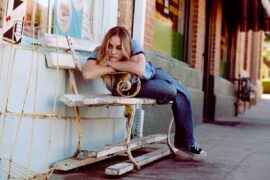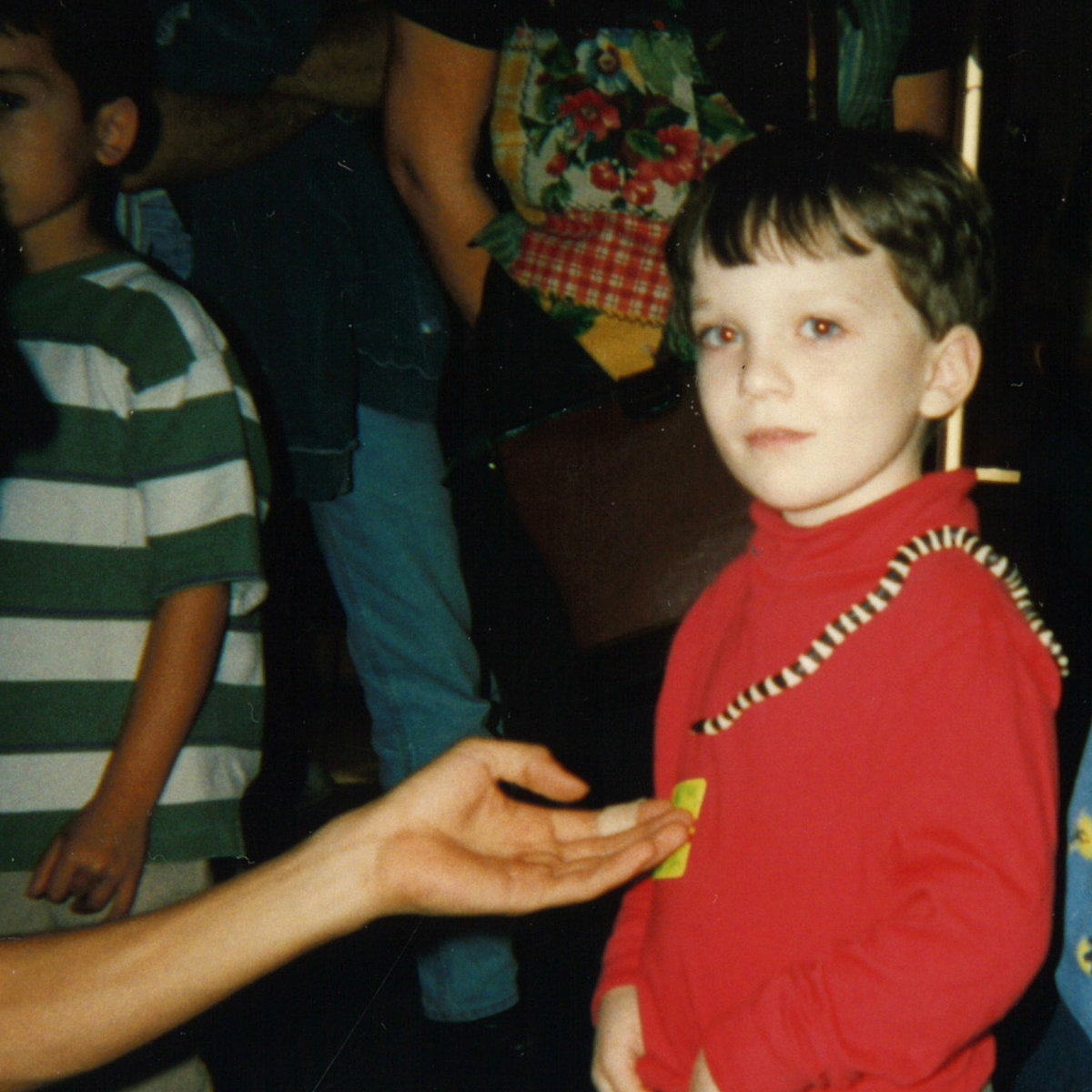X Ambassadors lead singer Sam Harris speaks to the making of ‘Townie’ and the lyrical inspiration he and the band were able to achieve from being back in their hometown of Ithaca, New York, where they’d all gotten started over half their lives ago.
Stream: ‘Townie’ – X Ambassadors
We’ve taken the time to not only craft the songs to a place where we feel like they’re getting at a deep truth to who we are, but we also were able to build that visually and create a whole world that matched the record.
Back in 2015, there were a lot of strong leading candidates for the catchiest chorus line of the year – “Uptown funk you up, uptown funk you up” and “I can’t see my face when I’m with you, but I luuuvv it” among them.
Another respectable competitor in that crowd was “And I say hey, hey hey hey, livin’ like we’re renegades,” the central lyric of X Ambassadors’ single “Renegades.” It helped propel the Ithaca, NY-based band to its greatest public exposure to-date and set the stage for the release of their debut album, VHS, that same year.
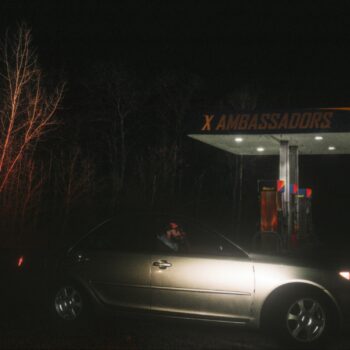
The period that followed posed a variety of challenges, especially the departure of guitarist Noah Feldshuh. Eventually, though, the three main players– brothers Sam and Casey Harris, respectively the lead singer/guitarist and keyboardist, as well as drummer Adam Levin – regained their footing and put out their sophomore album, Orion, in 2019. That was followed not long after by Album #3, 2021’s The Beautiful Liar, and another mere two years later, X Ambassadors scored a spot on the Aquaman and the Lost Kingdom soundtrack with their song, “Deep End.”
Given all of this momentum, the band swiftly resolved to set out on the production of their fourth album. For that, they headed back to where it had all begun – the good old town of Ithaca in upstate New York. X Ambassadors recorded Townie in its entirety in their hometown, and also shot all of the corresponding music videos around the area, often in collaboration with Cornell University students.
In a candid conversation with Atwood Magazine, frontman Sam Harris describes this intimate production process and how it ultimately resulted in what he sees as the group’s strongest and most personal record to-date.
— —
:: stream/purchase Townie here ::
:: connect with X Ambassadors here ::
“Smoke on the Highway” – X Ambassadors
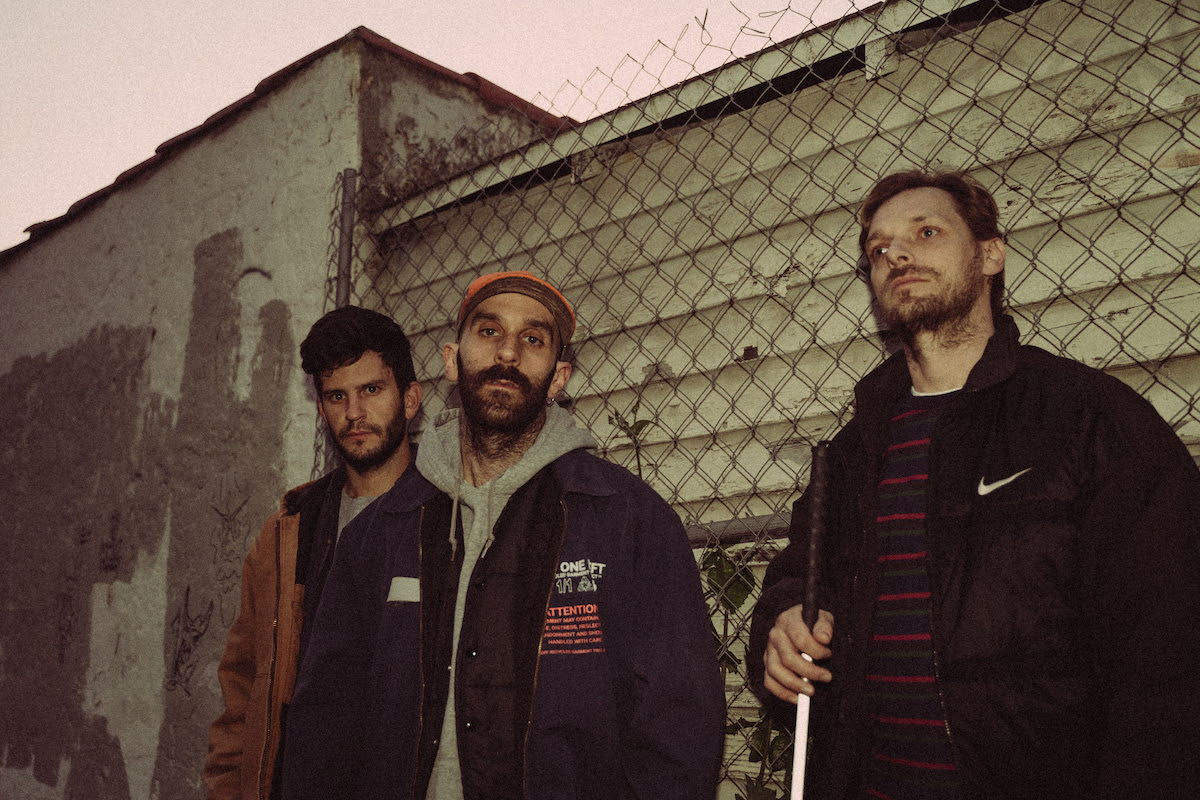
A CONVERSATION WITH X AMBASSADORS

Atwood Magazine: Townie is the fourth X Ambassadors album. How would you trace the band’s evolution, from one album to the next?
Sam Harris: Album One to Album Two was a very difficult transition for us. We went from a quartet to a trio, so that was a sticky and tough transition, figuring out how to reconfigure as a band in that regard. I think it also coincided with us deciding to find different creative partners on that second record. That took a while and we had to stop and start.
It was, like, four years between Album One and Album Two – a long time, and not for a lack of trying. We had an entire record that was done, but it felt scattered and disparate, and I was not confident that it was our best foot forward. I think I also was very hung up on the success that we had had with the first record and trying to replicate that – but you can never replicate that. Some people can, but I think a lot of it has to do with luck and timing. We worked very hard on that second record. I’m still very, very proud of it, but that was a tough transition to go from Album One to Album Two.
Album Three was, I would say, initially going to be a lot easier. It felt like it was at least, you know. I had a strong sense of direction of where I wanted to take us, and then the pandemic hit. We had this album that was done and we had to kind of regroup and say, “OK, how are we going to go about doing this? Are we going to try to rush this out? Are we going to try to take what’s been given to us, this time, and maybe do something even crazier with it, like, say, make a narrative podcast around the whole record?” So, we did that, and we were able to create a pretty strong, unique visual palette as well, and that’s always very important to me – the aesthetic choices that we make as a band.
I would say, [while making] the first two records, it felt harder to take the time to do that because things were just moving so fast all the time and we were just trying to jump on whatever seemed to be going on at the moment. [A lot of our decisions were] last-minute – “OK, this song is going to be placed in this thing, let’s try to make a music video for it because radio needs a music video for it,” rather than, “Hey, let’s try to think about what fits best artistically for this piece.”
And then, that leads us to this record. We put our last record out in 2021 and now it’s three years later in 2024. We have something that we’re so proud of; [we’ve] taken the time to not only craft the songs to a place where we feel like they’re getting at a deep truth to who we are, but we also were able to build that visually and create a whole world that matched the record. Oddly, I think this is the most prepared we’ve ever been for an album cycle. We’re really kind of doing it with all the proper timing that we’d set out to do it in. It’s taken us 10 years to try to do that.
How would you present yourself to fans who still know you best from your mid-2010s hits like “Renegades” and “Unsteady,” but now have the chance to discover the 2024 version of the band?
Sam Harris: Thinking like that is really hard for me because it takes me down the road of things that are not in my control so much. I – and we as a band – have always just tried to take the path of moving forward and making stuff that we think is really good and speaks to a truth in us. I think this record specifically speaks to a lot of deep truths within myself.
If I think too much about trying to persuade someone to listen to my music – well, look, it’s not “not” part of my job. Part of my job is to persuade people to [embarace] my music, but I like to do that by making stuff that I think is worth listening to. I like making stuff that’s vulnerable, that feels like I’m taking a risk creatively [and] emotionally. I like to do it by making stuff that I feel has a specific identity to it, [then] taking some of those expectations and trying to turn them on their head a little bit.
Our fans are so amazing and the ones who have really been with us since the beginning – they understand that, I think. They understand what we are reaching for every time. It’s some sense of truth and connection via looking inward and finding [new] things. As a songwriter, I like finding things I feel are uncomfortable about myself, putting them on display in as vulnerable a way as I possibly can, and saying, “Hey, I feel like this sometimes and it scares me,” or, “Hey, I feel like this sometimes, and it excites me,” or “Hey, I feel like this sometimes and it makes me angry. And what do you think? Do you feel this way too?” And I feel like our friends have always been responsive to that.
We have always just tried to take the path of moving forward and making stuff that we think is really good and speaks to a truth in us. I think this record specifically speaks to a lot of deep truths within myself.
Townie is a very personal record for you guys. You’re going back to your upstate New York roots and digging through your own personal history on the lyrics and such. What made you decide the time was right to make your most personal record to date, and what steps did you take to achieve just that?
Sam Harris: Well, I think my writing has naturally just sort of found its way there. It’s taken me a long time to get comfortable with my own perspective and not be afraid to really express my own personal perspective in the context of being in a band. I have a very egalitarian, democratic kind of mentality when it comes to being in this band historically. What that’s done, in a lot of ways, has been amazing, because it’s made me get outside myself a little bit and put my own ego aside. But in a lot of other [ways], it’s held me back from making stuff that has felt more personal because I’m trying to incorporate everybody’s perspectives – all three of us – and that’s just never going to actually be possible. So, I think, as I’ve grown older, I think I’ve become a better writer. My tastes and my creative decisions have leaned more towards writing stuff that is a bit more autobiographical on a granular scale.
Around making this record – I think I was going through a little bit of an identity crisis. I have been in this band for so long – 2007 was when we first started, but my brother and I have been playing together since high school, so it’s been a huge [chunk] of my life. I’m 35 now, and I guess I started playing music with my brother when I was 15. So yeah, I’ve been in this band [for over half of my life].
Maybe around 2021 or 2022, I found myself thinking about the future and where I [wanted to] go from here, [especially while] seeing my brother now in such a stable position as a father and a husband. My relationship to my brother, in a lot of ways, is very codependent. My brother was born blind and I have spent so much of my life worrying about him and trying my best to take care of him. Now, he’s in a position where I don’t have to take care of him. I think that was a catalyst for my identity crisis, because I had to look inward and say, “OK Sam, now that that’s settled, at least temporarily, what about you? Who are you?” So, that’s why I think I ended up exploring a lot of those themes on this record.
This is your first self-produced record. What was it like making a “self-produced record,” exactly, and how do you think that process influenced the musical outcome and made it a little different than it might have been otherwise?
Sam Harris: We’ve been co-producing all of our records. I think, at this point, we’ve done enough on our own. Outside of the band, we’ve been producing for other artists and working with them, so this time around, we felt that we had the record in place when the songs were there. It just felt very doable for us to finish it ourselves.
We didn’t really think of it in terms of, like,“OK guys, this time we’re doing it all by ourselves!” It wasn’t that; it was very much like we kind of ended up with a record and it was self-produced by us. But in the future, [we’ll see]. I love working with other producers, and there’s a volume of work that we always bring to the table in making another record that can be overwhelming.
This time around, it was very easy to parse out which songs belonged on the record and which didn’t. I’m sure at times, moving forward, there will be 30 songs or something and we won’t know which songs to cut down if we want to make a 10-song record. Our producer would be saying, “You know, I like these ones– take it or leave it.”
I also love sonically working with other people. It’s not necessarily the way we’ll work going forward, but it was really nice to do it this time around by ourselves.
What was it like to be able to come back home to Ithaca and reconnect with the community there via your creative projects?
Sam Harris: It felt great, because that’s what the album’s about. It felt so right to be there and create all of the visual language for the album in the place where I grew up. I don’t think we could have done it anywhere else, to be honest.
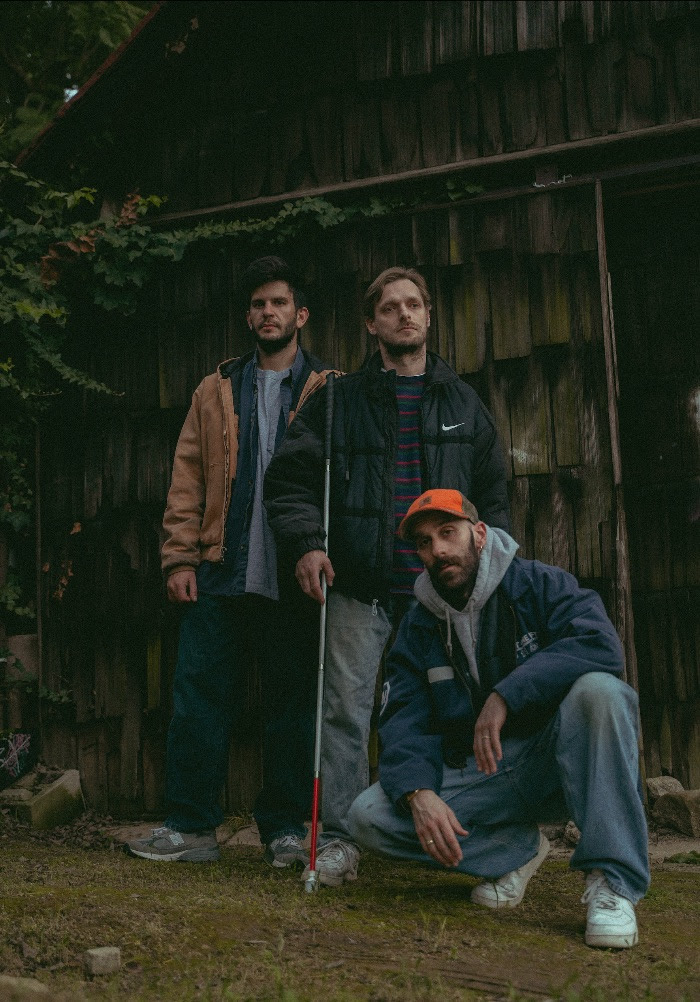
Now that this album’s out and you’ll be on tour promoting it, how do you hope to connect with fans in the near future?
Sam Harris: I hope we have a good time. I’m very excited to play this music live. I’m excited to feel it in front of an audience. I know that we wrote something that was very honest and raw, and I am looking forward to talking to our friends before and after the show, hearing their stories and how they relate to this record. It’s maybe my favorite record that we’ve ever done and I can’t wait to put it up on its feet and take it out on the road.
We [actually] just finished up a run in Europe and the UK, and we’re about to embark on an all-American tour. I couldn’t be more proud of the show [or] the album, so I’m excited to get out there and play the damn songs.
What was it like getting to produce a song for the Aquaman movie and have it featured on the soundtrack?
Sam Harris: It was cool! I really like writing for film and TV. Again, it’s another way for me to get outside of my own ego and work within the parameters of whatever the new project is. And, you know, I’m a kid who grew up reading a lot of comic books, so it makes sense that, historically, we’ve done a lot in that world and in that genre.
I look forward to branching out and writing for other films and genres at some point in my life, but for now, I’m able to remind myself of the little kid that I was who would have been so stoked to know that I’d written a song for the Aquaman soundtrack.
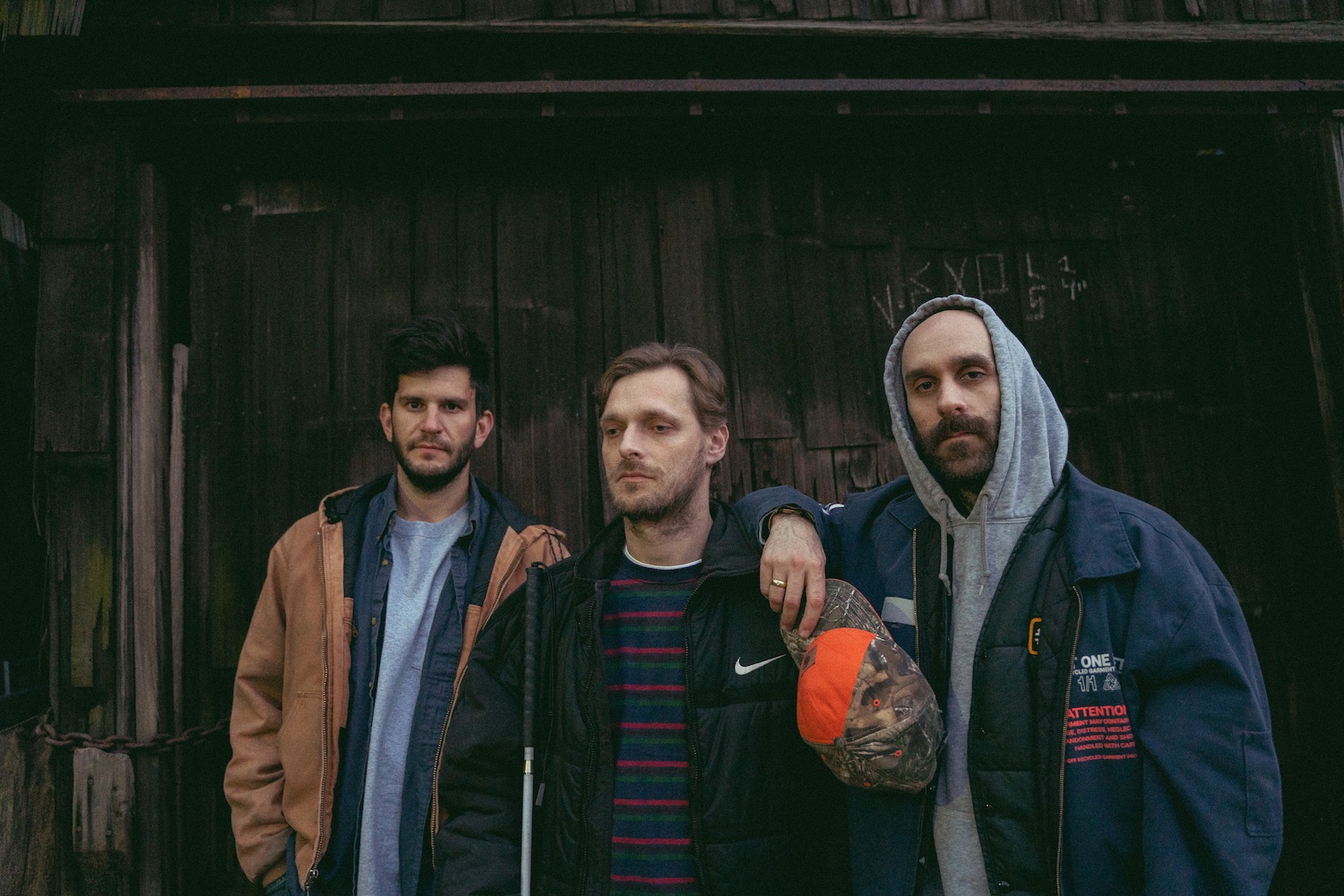
Where does the name 'the X Ambassadors' come from?
Sam Harris: There’s no story to it, really. It was a random name that we picked after a long band practice in 2008 or ‘09, where we’d stare at items in the room and say, “Maybe ‘lamp’ or ‘carpet’ or ‘window’!”
Eventually, we landed on “ambassadors,” [because] our drummer plays Remo-coated Ambassador drumheads. We later added the “X” for legal reasons so that we didn’t get sued by another band called the Ambassadors. And that’s how it came to be.
— —
:: stream/purchase Townie here ::
:: connect with X Ambassadors here ::
— — — —

Connect to X Ambassadors on
Facebook, Twitter, TikTok, Instagram
Discover new music on Atwood Magazine
© Tyler Jay Hanson
Townie
an album by X Ambassadors

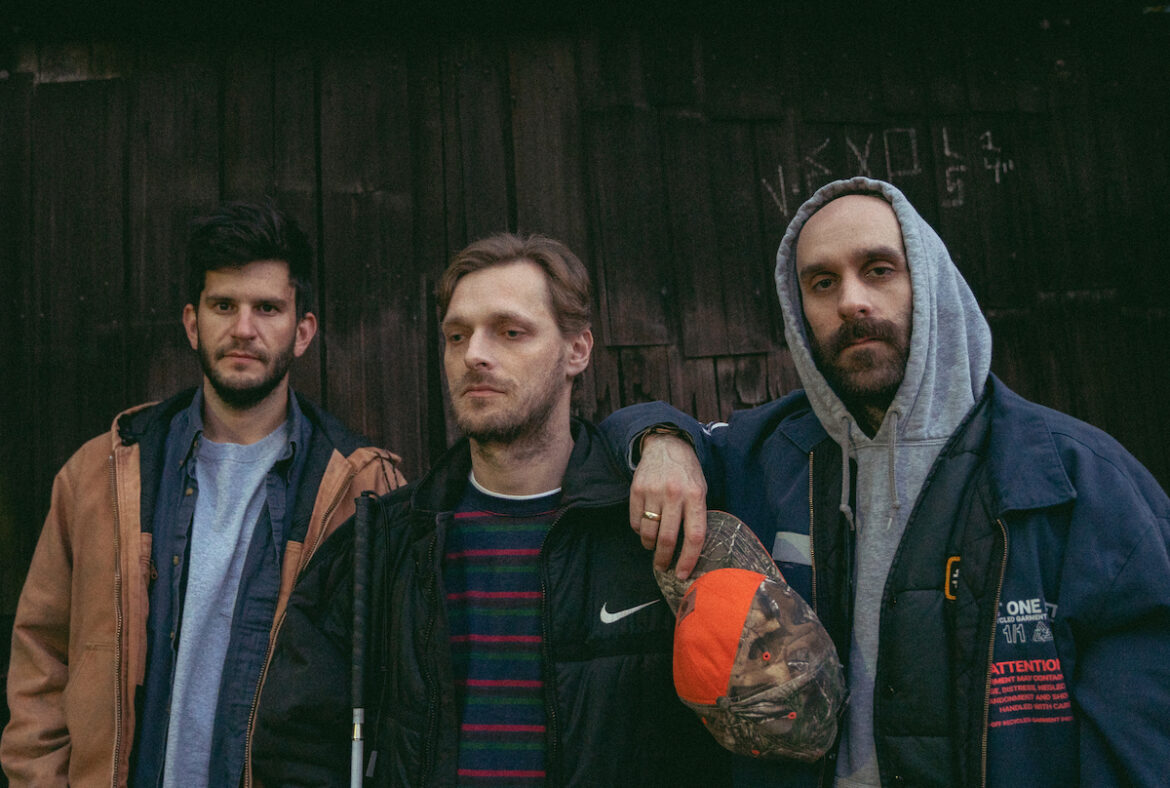
 © Tyler Jay Hanson
© Tyler Jay Hanson


